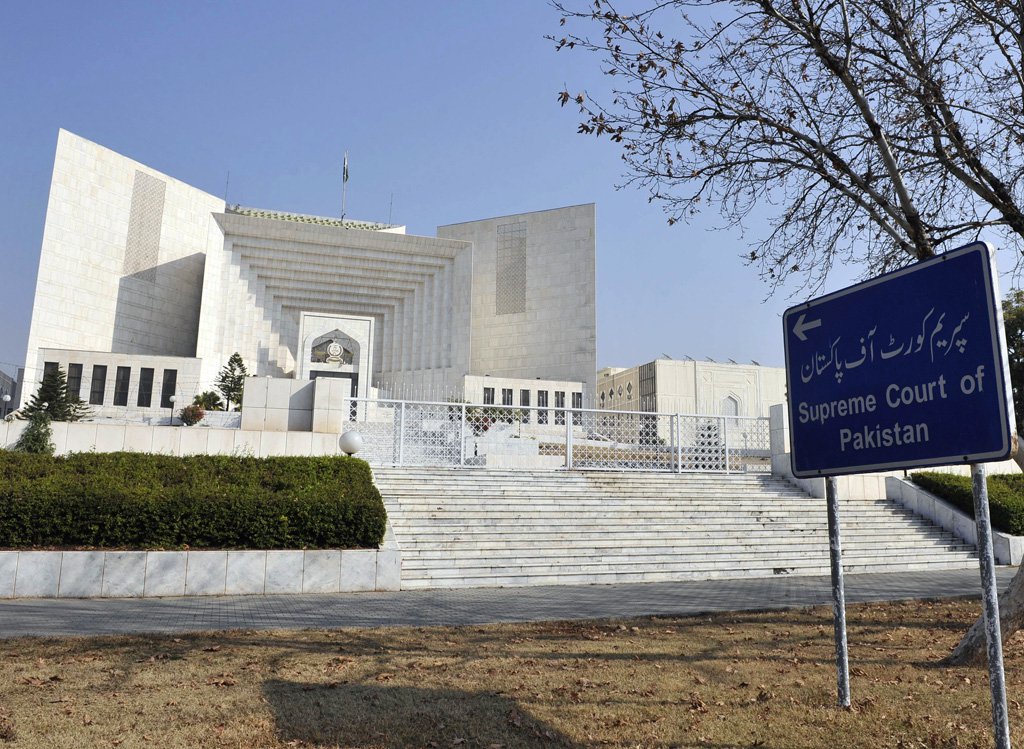
“It has been resolved that the demand by the council on April 21 for framing of the rules by the SC to regulate exercise of powers under Article 184(3) is reiterated and to insist upon resolution of this issue on administrative side,” said a resolution passed in a PBC ‘whole house’ meeting held on Saturday.
The meeting – chaired by PBC Chairman Anwar Mansoor Khan, who is also attorney general for Pakistan – also announced that a committee, comprising the PBA chairman, Vice Chairman Kamran Murtaza and Chairman Executive Committee Shabbir Shar, would meet Chief Justice of Pakistan (CJP) Mian Saqib Nisar in this regard.
“Besides framing rules, the PBC also agreed that if the case is to be resolved judicially, then all 17 judges of the apex court should hear the matter,” it added. The resolution was adopted on recommendation of PBC Executive Member Raheel Kamran Sheikh, whose letter was placed before the council meeting.
The letter said the Supreme Court while assuming jurisdiction and exercising powers under Article 184(3) in every case should consider as to which fundamental right is involved.
PBC urges SC to regulate suo motu powers
“Is there any consensus or majority opinion amongst judges as to what is sought to be enforced is a fundamental right contained in Chapter-I of Part-II of the Constitution? How the matter in proceedings involves a question of public importance?” said the letter.
It said the manner in which Article 184 (3) has been used in the last one decade provides ample evidence that it is a vital source of empowerment of the court vis-à-vis other organs of the state and particularly the chief justice.
SC seeks input to regulate its suo motu powers
“It is historically also established that such a power has been exercised and used (i) to substantially undermine the doctrine of dichotomy of powers and for intrusion in the affairs of other organs of the state, particularly the executive (ii) for the judicialisation of politics and used as an alternative to the writ of quo warranto (iii) exercise for control of those who could question the court of its own performance eg media (iv) for popularity derived by taking suo moto notice of matters involving high media value.”
Sheikh said the power under Article 184(3) is vested in the court and not any particular judge or the CJP. Hearings in most cases under Article 184(3) have been conducted by the bench headed and constituted by the CJP, meaning thereby that the views of a CJP virtually dominate interpretation vis-à-vis the nature, scope and limits of the fundamental right subject matter of the proceedings.
“…Although these are quite capable of diverse interpretations and what should prevail is consensus or majority view of the court in such matters of public importance (b) the manner and the extent to which parties will be heard are entirely arbitrary and dependent upon the temperament of an incumbent CJP heading the bench,” he said.
He said this is a matter of particular significance and concern inasmuch as right to fair hearing is a fundamental right guaranteed by the Constitution under Article 10A, and there is no right of appeal provided against any order, judgement or decision under Article 184(3).
Other decisions
The council by majority votes also demanded that the Federal Law Minister Dr Farogh Naseem also to ‘exhibit’ moral courage and resign as the council’s executive member.
The PBC, however, unanimously demanded of the apex court to restore practicing license of former AGP Irfan Qadir. In March 2015, the SC led by chief justice Jawwad S Khawaja suspended his practicing licence. However the matter is still pending in the court.
The council also formed a two-member committee led by Ahsan Bhoon to negotiate with representatives of the different divisions of the bars, where are on strike and demand formation of new benches of the Lahore High Court.





1732356840-0/Copy-of-Untitled-(1)1732356840-0-270x192.webp)



1732355030-0/BeFunk_§_]__-(41)1732355030-0.jpg)
1732340798-0/BeFunk_§_]__-(35)1732340798-0.jpg)






COMMENTS
Comments are moderated and generally will be posted if they are on-topic and not abusive.
For more information, please see our Comments FAQ